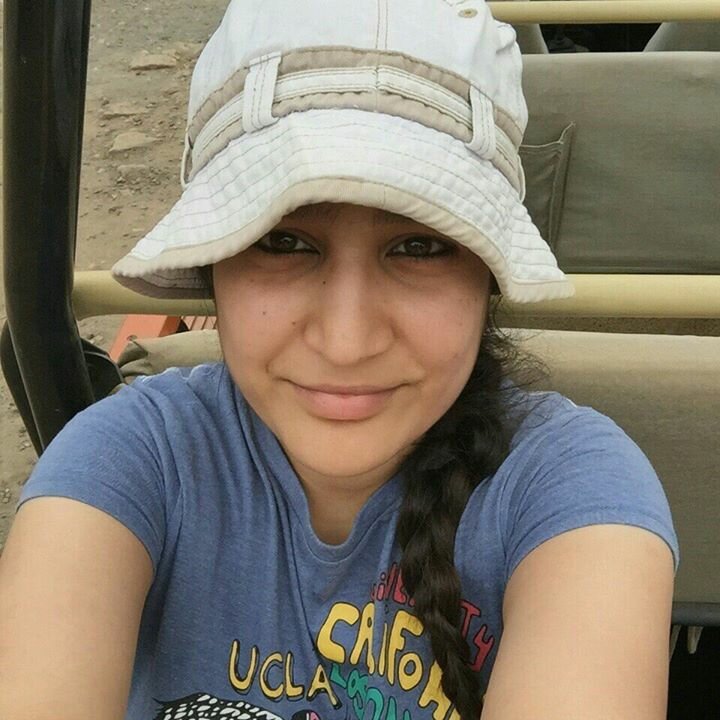We Found Out How The Creator Of Economic Pads, Suhani Jalota, Is Also Inventing Freedom For Many
- IWB Post
- February 4, 2017
Mumbai’s Suhani Jalota was recently in the news after Hollywood star Meghan Markel visited India to talk about women sanitation and education.
Suhani, who’s in her early twenties, took Meghan on a two-day spree making her interact with the underprivileged women who work in her community called Myna Mahila Foundation.
Suhani was still a teenager when the idea hit her mind. It was during her summer break at the Duke University that she returned to India and started working on her idea to reform public health in Indian slums. Consequently, Myna was founded back in 2014.
“The topic of rural sanitation concerns me a lot. During my personal interaction with rural women, I realized how bad the situation is in our country. They told me about the harassment they faced on their way to public bathrooms. It is these women who inspired me to take the initial step,” shared Suhani.
After a rigorous brainstorming session, the team came up with an idea of turning their mission into a tangible product. Soon after, pad-making machines were installed, and a two-day workshop was held to learn all about the process.
“Women in slums don’t use pads, firstly because they cannot afford it. Second, many of them are not allowed to go outside and buy pads for themselves. Third, they don’t know what a sanitary pad is! At Myna, we make pads, sell them and spread health-related awareness. The pads are extremely pocket-friendly and healthy for one’s skin, too,” explained Suhani.
Once the production started, the women tried the first lot of pads to check the soaking capacity, see-through concern, and comfort.
Suhani and her team denied working for already established sanitary pad companies in India since most of them use Chinese raw products in the making, which is not healthy for the human skin. “The irritation, itching, and other skin infections are easy to arise,” suggested Suhani.
Myna foundation only employs women from the slum areas. From its Operational Manager to Accountant and Production Officers, every employee is a woman who was once not permitted to step outside her home and earn money. Suhani told us, “It would have been a task for us to get them to work at Myna had they not known me from our past social and volunteering programs. However, the real challenge appeared when we decided to adopt a door-to-door selling process to spread the word about Myna’s pads. Two years ago, they used to feel extremely shy talking to strangers. I am glad the young girls in the group took charge and helped the elderly come out of the inhibition.”
Along with holding the conversation about women’s hygiene, Myna foundation is also trying to break taboos surrounding menstruation. This includes issues like not letting a menstruating woman enter the kitchen and temple, enjoy food with other family members, etc. Suhani remembered, “We’ve got ourselves into many heated situations where, for example, a Hindu woman tells a Muslim lady not to affect her practice of Rozas while she’s menstruating. I guess things will take time. If we ever decide to take this dialogue-initiative aggressively, we will definitely attract threats.”
Another threat that this empowering group of women faces is by the men ruling the sanitation pad industry. “We supply to many maternity homes and government hospitals. This irks the already established businessmen, who, supposedly and ironically, are not aware of women’s sanitation issues. For us, it’s not a business. It’s a process of educating women about their heath, at that, making them financially independent.”
During the telephonic conversation, Suhani happened to narrate many emotional yet beautiful stories of how her women workers could transform their lives once they started working together towards this noble mission. “About eight months ago, a girl named Noorjahan was brought to our community. This girl was suffering from an emotional instability because of a painful family condition. She wouldn’t take a bath for days, eat or even speak to anyone. When she came to us, all of took our turns to chat to her every day. While some of us began teaching her subjects like English, mathematics, etc., others took charge of her sanitation. Today, one must see how she communicates with people around her and does the complex account-related calculations. She is one of my biggest victories,” shared a smiling Suhani.
If you haven’t understood yet, Myna was named after the bird Myna because of its chirpy nature. Suhani enlightened us by explaining how women, through chirping (read: dialogues), can empower one another. Moreover, Myna translates to ‘Maheena’ (month) in Hindi which also means ‘periods.’
We loved how, throughout the conversation, Suhani used ‘we’ instead of ‘I.’ Apparently, she gives credit to her amazing team of women who are, in turn, empowering her. Suhani signed off by saying, “I could never put a title to what I was doing for the poor or desired to do. These women have given me a direction, as well as a name. Myna belongs to them.”
[Pictures are Suhani’s own]
- 0
- 0





